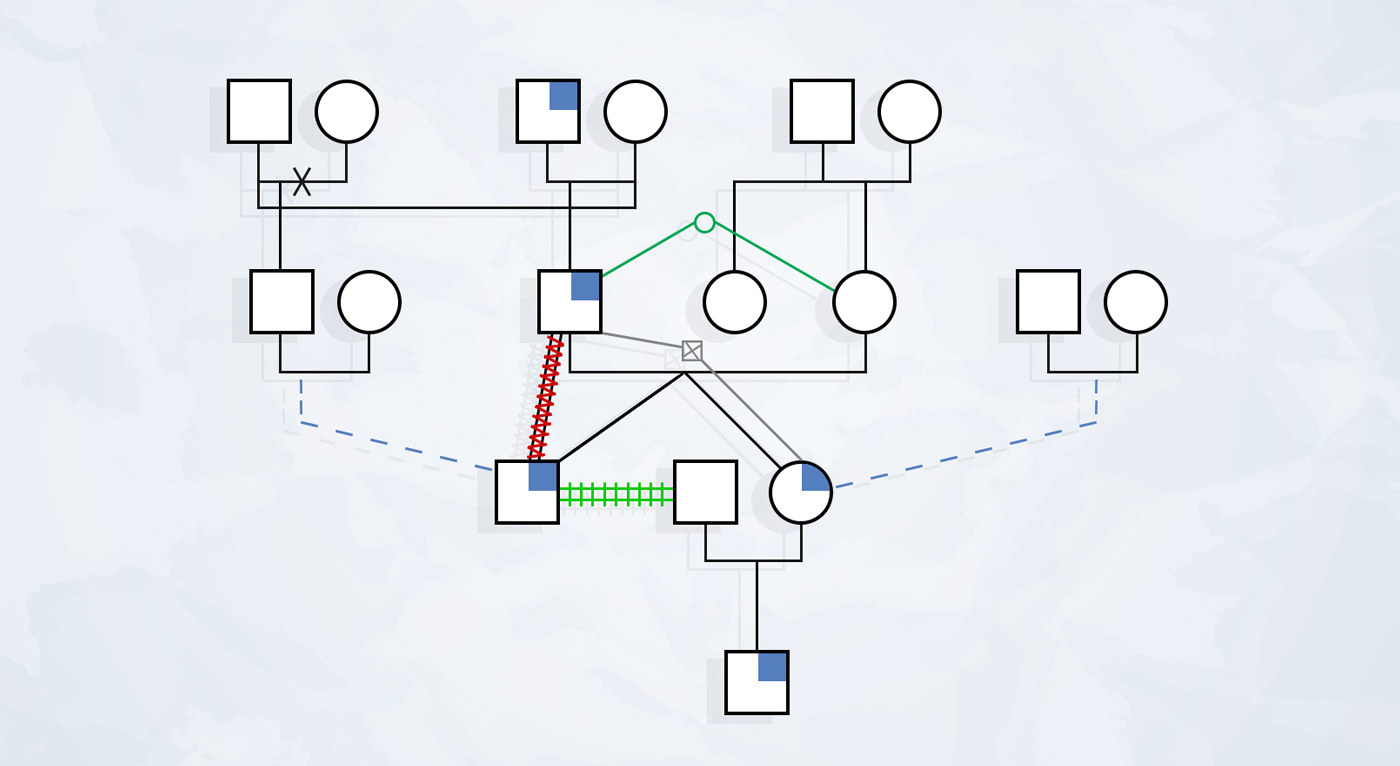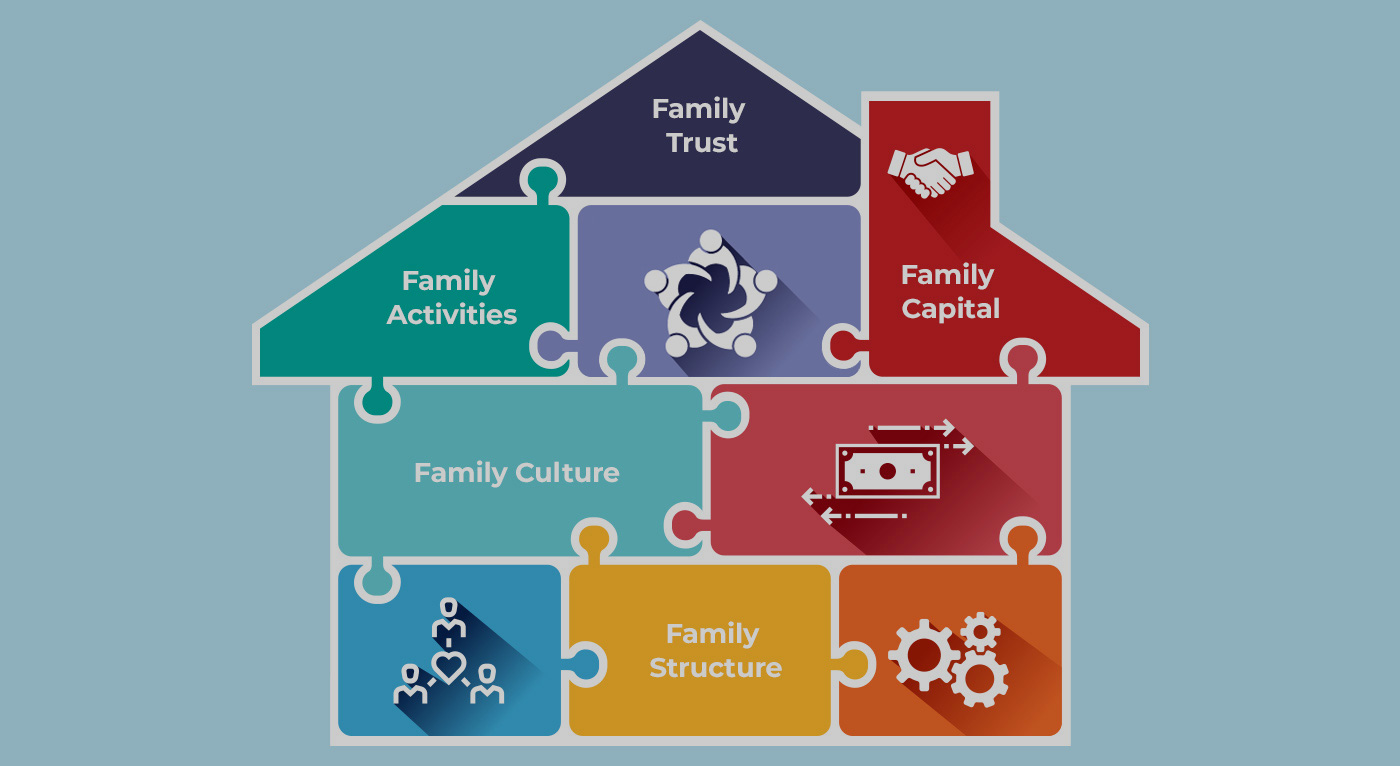Accidental Partnerships: A new lens on sibling and cousin partnerships
At first, it seemed ridiculous – how could they possibly fill the shoes of their father, Greg, who built such a remarkable portfolio of commercial real estate holdings? And how would they ever figure out how to work together?
Trust and the Family Business
How have shifts in employee expectations and other pronounced societal changes impacted employee trust within family businesses?
How to Keep a Business Family Alive: Families that fuel next generation family business leaders
This week, we are pleased to share the results of a research study on the succession strategies of select family-owned multigenerational German wineries.
Working with Family Diagrams in Family Business: Reflections from 20 years of practice
Thanks to Guillermo Salazar, a member of the FFI IberoAmercian Virtual Study Group, for this article reflecting on the value of utilizing Family Diagrams in his consulting work with families over the years.
FFI Practitioner: Most Popular Articles from the Third Quarter of 2019
FFI Practitioner remains one of the most attractive publications in the field and we are pleased that our broad-based circulation continues to generate interest and awareness of key topics in the field by authors from around the word.
What Makes a Family Business Program Donor Tick?
Thanks to this week’s contributor, Jerry Katz, Robert H. Brockhaus Endowed Chair of Entrepreneurship at St. Louis University (SLU), for his interview with Mike Medart, a fourth generation family member of Medart Engine, for helping us understand what motivates a family enterprise member to make a gift to a university based family business program.
Research Applied: FBR Précis for FFI Practitioner
Thank you to this week’s contributor, Maya Prabhu of the FBR Research Applied Board, for sharing her précis of “The Effect of Value Congruence Between Founder and Successor on Successor’s Willingness: The Mediating Role of the Founder–Successor Relationship” – an article that appears in the September 2019 issue of FBR.
Congratulations to the Recipients of the 2019 Global Education Network (GEN) Scholarships
We are pleased to announce the 2019 winners of the FFI GEN scholarships and to thank the generous sponsors of these five awards for leading the way in ensuring that professionals in the field receive the outstanding interdisciplinary education that FFI has become known for globally.
Paradigm Shifts in Addiction Treatment
In this week’s edition, we feature an interview with FFI member and Miami conference presenter, Ross Ellenhorn, in which he discusses the paradigm shift that has, and continues, to reshape thinking on addiction treatment.
Family Business Sanity Check
In today’s world, family business owners have a lot to worry about – from rising taxes to developing future leadership.
Research Applied: FBR Précis for FFI Practitioner
In this week’s FFI Practitioner, we are pleased to share a précis of “Multilayered Socialization Processes in Transgenerational Family Firms” – an article that appears in the September 2019 issue of FBR.
The Role of Risk Management in a Family Enterprise
This week, we are pleased to share an article by Bilal Zein examining the topic of risk management in family enterprises.
Interdependent Wealth: How family systems theory illuminates successful intergenerational wealth transitions
Thanks to this week’s contributor, Steve Legler, for highlighting key concepts in his recently released book, Interdependent Wealth: How Family Systems Theory Illuminates Successful Intergenerational Wealth Transitions, on relationships between family wealth and family systems theory.
Cases for Clients
In this week’s edition, we are pleased to feature a selection of family business cases published in FFI Practitioner earlier this year. These cases can serve as effective tools to incorporate in consulting and educational work with clients and further the FFI Practitioner mission to provide readers with practical materials that support their work with multi-generational family enterprises.
Congratulations to the 2019 Award Recipients
FFI has always been about excellence, fostering academic research, encouraging best practices, and inspiring professionals for more than 30 years. Each year FFI honors excellence in the field by granting academic, achievement and FBR awards.
Creating, Preserving, and Transferring Family Capital: The keys to family business success
Thank you to this week’s contributor, Gibb Dyer, for sharing insights he’s acquired during his thirty-five years as a family business consultant. We hope you enjoy this week’s FFI Practitioner in which the authors identifies five factors that assist family enterprises to grow and transfer their family capital to the next generation.
Launching the Parallel Planning Process: Aligning family and business systems
Thank you to this week’s contributors, Randel Carlock and Keng-Fun Loh, for this examination of the enhanced Parallel Planning Process (PPP), a tool that can help advisors to professionalize the family and business planning process.
Challenges that Asian Families Face in Developing a Full-service Family Office
This week’s FFI Practitioner edition continues our series of articles written by members of the Editorial Committee. Thank you to Paul Chung, Jeremy Cheng, and Chin Chin Koh for this article examining the challenges confronting Asian families interested in establishing a single family office as well as practical advice for advisors navigating these family office challenges around the world.
Practice, Practice, Practice: Musings on being a “Practitioner”
Thank you to this week’s contributor, Patricia Angus, who continues our series of FFI Practitioner articles written by members of the Editorial Committee. In this edition, Patricia examines what it truly means to be a “Practitioner” and the impact of ongoing practice when working with family enterprise clients.






















